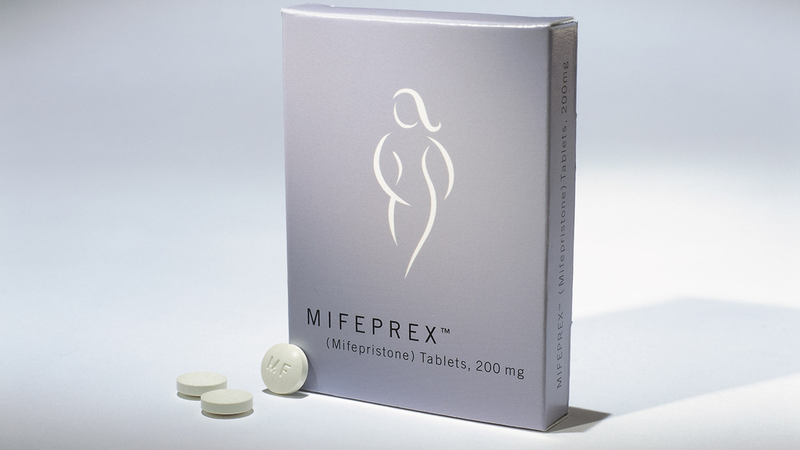
PHILADELPHIA (KYW Newsradio) — A district court judge in Texas is expected to hand down a ruling that could ban an abortion medication and have far-reaching implications — particularly, in states like Pennsylvania and New Jersey, where abortion is currently legal.
The case of Alliance for Hippocratic Medicine v. FDA seeks to ban the use of the drug mifepristone, claiming the FDA’s process of evaluating and approving the drug in 2000 was flawed.
“Pennsylvania is among 10 states that could experience the most severe impact if mifepristone were banned,” said Dayle Steinberg, president and CEO of Planned Parenthood Southeastern Pennsylvania.
Mifepristone is one of two oral drugs commonly used together in medication abortions, as some clinics do not offer a surgical option. Mifepristone is used in more than half of all abortion procedures nationwide and is seen as much less intrusive than surgical abortions.
“In Pennsylvania, restrictive and costly licensing requirements for surgical abortion facilities years ago caused many former abortion centers to close,” she noted.
That means, if the Texas judge rules the drug should be banned, abortions in states like Pennsylvania, where it is currently legal, could become more difficult and inaccessible.
“Taking it off the market could significantly compromise abortion access across the country, which is already out of reach for millions due to the overturning of Roe and with 18 states already banning abortion,” Steinberg continued.
The outcome of the case also threatens patients who need treatment for miscarriage management, which is commonly done with Mifeprex, the brand-name version of mifepristone. Steinberg said it also threatens the FDA’s authority over the approval process for other medications.
FDA’s approval process
The lawsuit was filed by the group Alliance Defending Freedom, which was also involved in the Mississippi case that led to Roe v. Wade being overturned.
“Our representatives in Congress created the FDA and gave the FDA the responsibility to make sure that drugs are safe before they’re allowed on the market … the FDA failed that responsibility,” said Julie Blake, senior counsel for the group.
They argue the FDA overstepped its authority in approving mifepristone by using an accelerated review process reserved for drugs to treat “serious or life-threatening illnesses.”
But in its legal response, the agency said it didn't accelerate the drug’s approval, which came four years after the manufacturer first submitted its application to market the pill.
The FDA approved mifepristone — in combination with a second drug — as a safe and effective method for ending a pregnancy in 2000. Common side effects include cramping and light bleeding. Cases of more severe bleeding requiring emergency care are very rare.
Halting access to the drug more than 20 years after approval would be “extraordinary and unprecedented,” federal attorneys stated in a legal filing.
“We really can’t underestimate the consequences of this case,” Steinberg added. “They could be incredibly far-reaching and go as far as taking mifepristone entirely off the market nationwide, even in states where abortion is accessible and protected.”
The drugs
Abortion medication is approved for use up to the 10th week of pregnancy. Mifepristone is taken first, by mouth. The drug dilates the cervix and blocks the effects of the hormone progesterone, which is needed to sustain a pregnancy.
Misoprostol, a drug also used to treat stomach ulcers, is taken 24 to 48 hours later. It causes the uterus to cramp and contract, causing bleeding and expelling pregnancy tissue. The combination has been shown to be more than 95% effective in ending pregnancies up to 10 weeks.
If mifepristone is pulled, providers could prescribe misoprostol alone instead, an approach that is used in many parts of the world, but would be a big shift in U.S. practice and has not been found to be quite as effective.
Such a ruling could also increase the need for surgical abortion and further increase wait times at clinics, which are already weekslong in some cases after the U.S. Supreme Court ruling overturning Roe.
The Associated Press contributed to this report.



